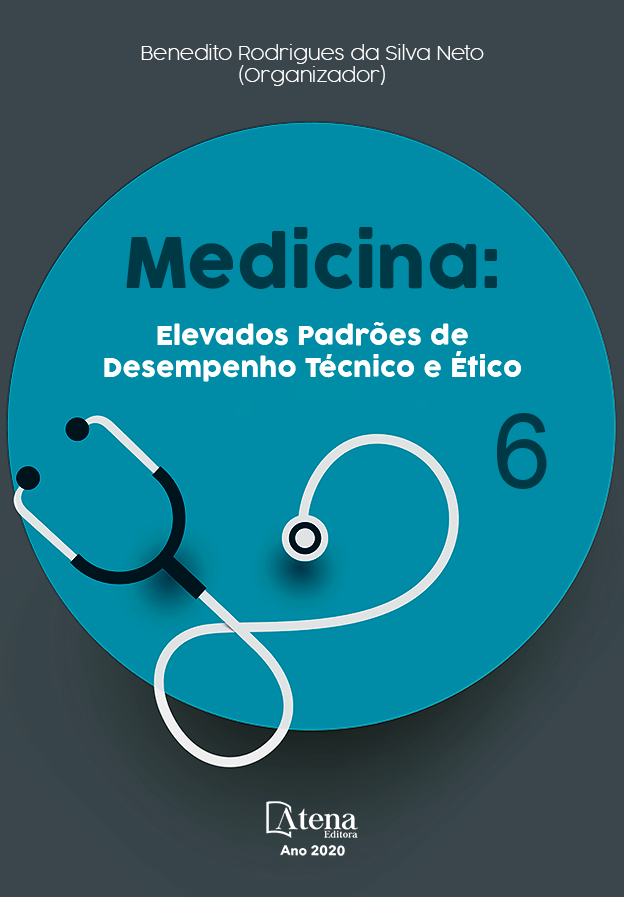
O PAPEL DOS MACRÓFAGOS NO DESENVOLVIMENTO DA TUBERCULOSE NO CONTEXTO DA DIABETES MELLITUS DO TIPO 2
A tuberculose, diabetes e obesidade são sérios problemas de saúde pública, estando diretamente relacionadas por favorecem um processo inflamatório intenso. Durante a diabetes a resposta inflamatória promove a indução da resistência a insulina nos macrófagos, podendo comprometer a capacidade fagocítica dessas células, uma vez que são importantes para o controle da tuberculose. O objetivo deste artigo foi compreender o papel dos macrófagos na obesidade e diabetes, com o intuito de demonstrar que as alterações dos macrófagos durante a diabetes podem favorecer o desenvolvimento da tuberculose. Foi realizada uma revisão de literatura, utilizando as seguintes palavras chaves: macrófagos, obesidade, diabetes e tuberculose, utilizando a base de dados PubMed, sendo que os artigos utilizados são os publicados nos últimos 5 anos, utilizando animais ou humanos para experimentação. A revisão de literatura permitiu observar que durante a diabetes há uma alteração nos receptores de fagocitose nos macrófagos, sendo esses TLR-2, MARCO e CD163, comprometendo a fagocitose de Mycobacterium tuberculosis. Além disso, a diabetes promove a redução da produção de MCP-1, TNF-α e IL-12, citocinas essenciais no recrutamento e ativação de macrófagos, bem como na indução de resposta específica Th1. Como consequência, a reduzida atividade dessas células compromete a eliminação de Mycobacterium tuberculosis in vivo, uma vez que há uma redução na indução de Th1. Portanto, durante a diabetes, há um comprometimento da atividade dos macrófagos, favorecendo o desenvolvimento da Tuberculose.
O PAPEL DOS MACRÓFAGOS NO DESENVOLVIMENTO DA TUBERCULOSE NO CONTEXTO DA DIABETES MELLITUS DO TIPO 2
-
DOI: 10.22533/at.ed.69320091116
-
Palavras-chave: Macrófagos; Obesidade; Diabetes; Tuberculose
-
Keywords: Macrophages; Obesity; Diabetes; Tuberculosis
-
Abstract:
Tuberculosis, diabetes and obesity are serious public health problems, being directly related because they favor an intense inflammatory process. During diabetes, the inflammatory response promotes the induction of insulin resistance in macrophages, which can compromise the phagocytic capacity of these cells, since they are important for the control of tuberculosis. The aim of this article was to understand the role of macrophages in obesity and diabetes, to demonstrate that changes in macrophages during diabetes can favor the development of tuberculosis. For this purpose, a literature review was carried out, using the following keywords: macrophages, obesity, diabetes, and tuberculosis, using the PubMed database. The selected articles were those published in the last 5 years, using animals or humans for experimental evaluation. The literature review showed that during diabetes there is a change in phagocytosis receptors in macrophages, which are TLR-2, MARCO and CD163, compromising the phagocytosis of Mycobacterium tuberculosis. In addition, diabetes promotes a reduction in the production of MCP-1, TNF-α and IL-12, essential cytokines in the recruitment and activation of macrophages, as well as in the induction of a specific Th1 response. Consequently, the reduced activity of these cells compromises the elimination of Mycobacterium tuberculosis in vivo, since the induction of Th1 response is reduced. Therefore, during diabetes, there is a compromise in the activity of macrophages, favoring the development of Tuberculosis.
-
Número de páginas: 17
- Lidiane de Paula Silva
- Álvaro Paulo Silva Souza
- Arthur de Carvalho e Silva
- Adibe Georges Khouri
- Sandra Oliveira Santos
- Alexsander Augusto da Silveira
- Adeliane Castro da Costa


